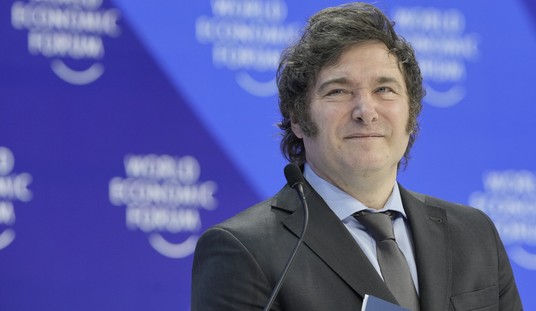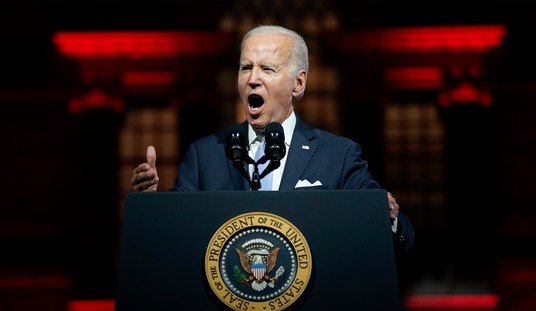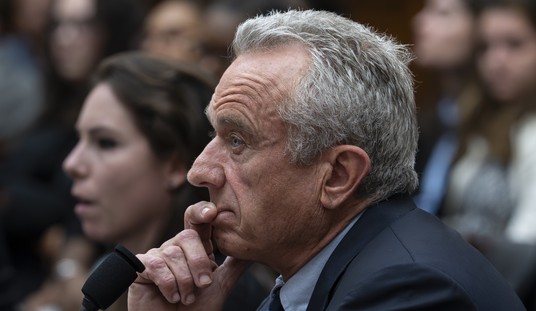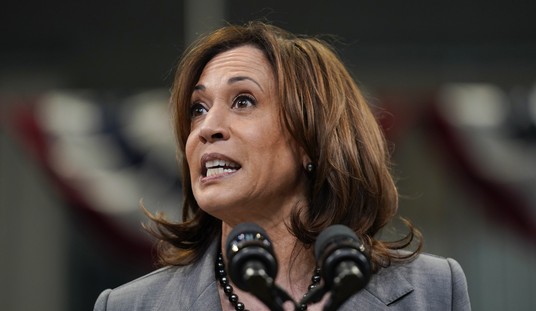The former foreign minister of Australia notices that he keeps running into the same people. Alexander Downer, in a March 15 article wrote:
You often hear people saying “it’s a small world”. I was reminded of this last week when reading about Timothy Geithner’s performance as the new U.S. Secretary of the Treasury.
In 1998, Geithner was the Under-Secretary of the Treasury, Larry Summers, who is now President Barack Obama’s head of the National Economic Council, was the Deputy Secretary of the Treasury and I, who now work for the UN, Adelaide University and a consultancy firm, was the Minister of Foreign Affairs of Australia. That year we all met in Washington.
I was worried. Indonesia’s economy was tanking and the country sought help from the International Monetary Fund. The trouble was, the IMF’s medicine was so drastic I feared it would cause total collapse of Indonesia’s economy and cause political and social chaos on our doorstep.
Downer says the same men are now in Washington. He continues:
Today, Geithner’s the economic boss man in Washington and Summer’s once more calling many of the shots. But this time I’m a spectator. If I wasn’t, I’d fly to Washington again and this time tell them they’re endangering not just Indonesia but the U.S. itself. Why? Because the problem with the U.S. economy is that it’s swamped with debt and their response is compounding the problem on the grand scale. They are adding to America’s already huge debts trillions of dollars of additional debt.
The worry is, where are they going to get the money from? The answer: China. For years the American economy has been built on a foundation of debt. It has run massive budget and balance of payments deficits and household consumption has been funded by debt. Believe me, this money has to come from somewhere and it has come from the reserves and savings of China and the oil revenues of the Middle East. The U.S. has depended on China and the oil-rich kingdoms of the Middle East buying U.S. Treasury bonds.
For those who can’t remember the crisis, Wikipedia notes “the IMF created a series of bailouts (“rescue packages”) for the most affected economies to enable affected nations to avoid default, tying the packages to reforms that were intended to make the restored Asian currency, banking, and financial systems as much like those of the United States and Europe as possible. … The role of the International Monetary Fund was so controversial during the crisis that many locals called the financial crisis the ‘IMF crisis’.” One man who was also active in Asia at the time was George Soros. The Wikipedia article noted the conspiracy theories that were rampant at the time because of the sheer speed with which the crisis developed and the unexpected abruptness with which it came to an end.
There was a general rise in anti-Western sentiment, with George Soros and the IMF in particular singled out as targets of criticisms. Heavy U.S. investment in Thailand ended, replaced by mostly European investment, though Japanese investment was sustained. Islamic and other separatist movements intensified in Southeast Asia as central authorities weakened. … The crisis has been intensively analyzed by economists for its breadth, speed, and dynamism; it affected dozens of countries, had a direct impact on the livelihood of millions, happened within the course of a mere few months, and at each stage of the crisis leading economists, in particular the international institutions, seemed a step behind. Perhaps more interesting to economists was the speed with which it ended, leaving most of the developed economies unharmed. These curiosities have prompted an explosion of literature about financial economics and a litany of explanations why the crisis occurred. A number of critiques have been leveled against the conduct of the IMF in the crisis, including one by former World Bank economist Joseph Stiglitz.
Soros, who was at the epicenter of the controversy at that time, is still a policy player in current events. In a recent interview by the Australian, it noted that Soros was having “a very good crisis”. In a transcript, Soros explained:
Australian: So do you have a sense that things are coming together for you now?
Soros: It is in a way a culminating point of my life’s work, so to speak.Australian: Everything is coming together.
Soros: Yeah, the American election, the financial crisis, the theory of reflexivity. So it is actually a very stimulating period.Australian: Just as well you didn’t retire ten years ago.
Soros: Right, right.Australian: Will you be having any input with the Obama administration?
Soros: Well, at least I will get a hearing.
Just what some of those changes Soros had in mind were, are summarized in the main Australian article.
He concedes that many of his proposals – such as loosening Washington’s grip on the International Monetary Fund; co-ordinating macroeconomic policies between national governments; and bringing in new international regulatory regimes for banking and markets to oversee some of the wilder financial instruments and derivative products – will be extremely difficult to sell politically. But he claims there is reason for at least some hope because of the growing awareness of the depth of the crisis. …
“I think the Obama administration is moving towards a good bank/bad bank solution, but it is not the right kind of good bank/bad bank solution. What they propose currently is creating this aggregator bank which will take the toxic assets out of the banking system, out of the banks, so it really injects government money into the bad banks, and I am saying that they ought to be injecting money into the good banks. I think it is difficult to generate the political will (for that) … and this is my main worry right now, that they may get it wrong.
“They (are) in a difficult situation because they have two obstacles. One is that the hole has become too big – you need something like a trillion and a half of new money in addition to the (initial) $US700 billion because the hole has grown.”
The second obstacle to be overcome is that the clumsy way in which the Bush Administration handled the Troubled Asset Relief Program has “poisoned the well”, making it more difficult to get future funding packages through Congress. …”
One of the things that Soros understood perhaps better than anyone else was the synergistic role that information played in making markets jump. “His view of the markets was also shaped by the sociological concept of reflexivity, the awareness that the simple act of observing a subject can affect that subject and distort the observations. Soros applied the idea to the markets, rejecting the notion that prices are the efficient outcome of “perfect” knowledge, instead insisting that they are shaped by the biases and ignorance of market players, and that those biases can be self-fulfilling.”
Soros used his faster OODA loop to teach policy makers a lesson by taking them to the cleaners. To some extent, Soros advances himself as Exhibit A of the kind of behavior that markets cannot protect against.
“Soros says his 1992 attack on the British pound, which forced then Chancellor of the Exchequer Norman Lamont to accelerate Britain’s withdrawal from the European Exchange Rate Mechanism, is an example of his constant search for the opportunities created by imperfect markets overshooting and under-shooting in that way.
“The authorities lagged, you see. There is this reflexive cat-and-mouse game going on between markets and the authorities all the time and I am more aware of it than perhaps most others, therefore I acted more decisively.
Thus, if we don’t “fix” the problems Soros has been warning about, the same catastrophe that befell Asia, and is now upon the West, will happen again and again. That will create a need to re-architecture of the system. Those who are familiar with the hacking game know that two things are often true: that hackers bring the system down, at least partially, to prove their power; but more importantly they hope to bring it down in such a way that when the flaw is fixed, it will make them even more powerful than before. What better way to control the Tipping Point than to get inside the system. Recently, the AP noted that Richard Holbrooke, another man Alexander Downer might have run into, served on the board of AIG. The world gets smaller every day.
WASHINGTON (AP) — Obama administration special envoy Richard Holbooke was on the American International Group Inc. board of directors in early 2008 when the insurance company locked in the bonuses now stoking national outrage. Holbrooke, a veteran diplomat who is now the administration’s point man on Pakistan and Afghanistan, served on the board between 2001 and mid-2008. During that period, AIG undertook the aggressive investment strategies that led to a near-collapse and forced a multibillion-dollar federal bailout.
In a world dominated by information, a meme is sometimes all it takes. Mark Steyn, in a recent article, described just how differently President Obama saw the crisis from other people. To hear the President describe it, it was almost as if the downturn could be switched off at the press of a button. Or perhaps it would really last forever, but in the future it would only seem to be switched off. An exercise in reflexivity. Steyn writes:
The Teleprompter Kid says not to worry: His budget numbers are based on projections that the economy will decline 1.2 percent this year and then grow 4 percent every year thereafter. Do you believe that? In fact, does he believe that? This is the guy who keeps telling us this is the worst economic crisis in 70 years, and it turns out it’s just a 1 percent decline for a couple more months and then party-time resumes? And, come to that, wasn’t there a (notably unprojected) 6.2 percent drop in GDP just in the last quarter of 2008? … I mentioned a few weeks ago the calamitous reality of the U.S. auto industry. General Motors has 96,000 employees but provides health benefits to over a million people. They can never sell enough cars to make that math add up. In fact, selling cars doesn’t help, as they lose money on each model. GM is a welfare project masquerading as economic activity. And, after the Obama transformation, America will be, too. The young need to recognize that this is their fight. They need to stop chanting along with the hopeychangey dirges and do something more effective, like form the anti-AARP: the association of Americans who’ll never be able to retire.
Alexander Downer says the spin doctors can’t cure the problem. Maybe that’s where he’s wrong because everybody knows Eurasia has always been at war with Oceania. The last words of the former foreign minister’s article are: “We have every reason to be afraid, very afraid.” Maybe that’s where he’s right.









Join the conversation as a VIP Member